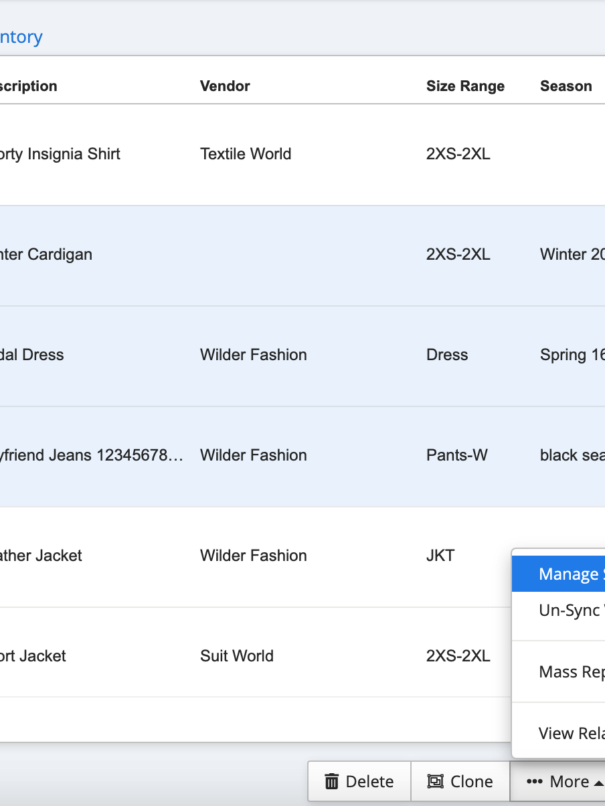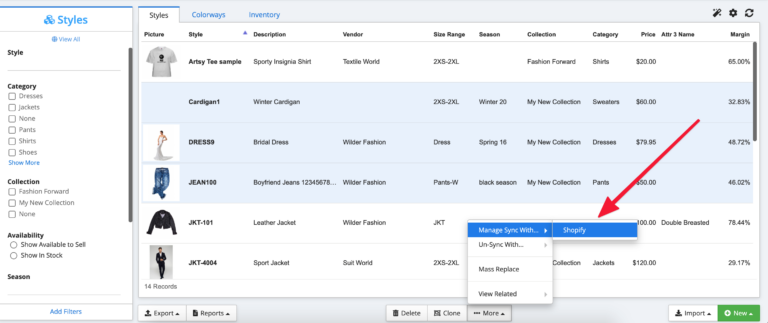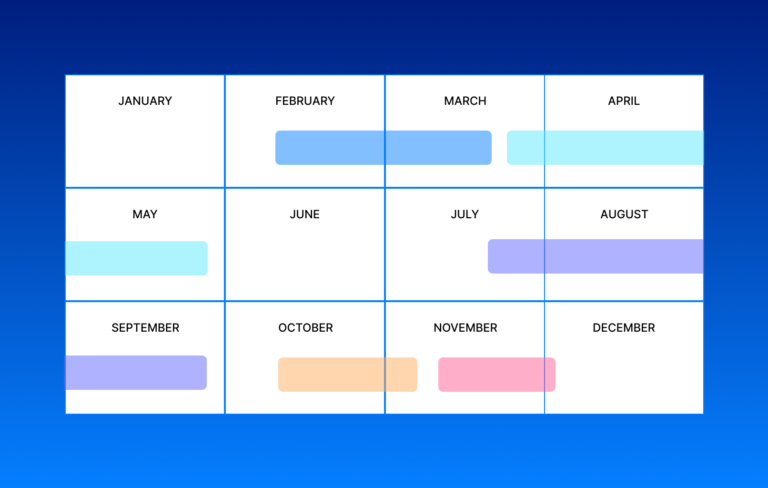In the dynamic fashion landscape, maintaining a robust sales momentum is the linchpin for long-term success.
For apparel retailers and e-commerce entrepreneurs, it’s not just about clinching the sale—it’s about doing it consistently and efficiently. An enterprise resource planning (ERP) system could be the needle that threads success through the fabric of every modern business in the industry.
Understanding ERP for Apparel Sales
What is an ERP System?
ERP is a software architecture that facilitates the flow of information across various business processes.
This includes everything from inventory management and streamlining the sales process to customer engagement.
The ERP Sales Edge
For the fashion sector, ERP systems are transformative, aligning every thread of the business, from the warehouse to the checkout cart.
Implementing an ERP can help you anticipate market trends, optimize your inventory and sales processes, and engage customers in meaningful ways.
Enhancing Inventory Management
Inventory Under Control
One of the most tangible benefits of an ERP system in apparel retail can be seen in inventory management. With tools to track product movements, sales patterns, and stock levels, ERP systems keep inventory lean and mean.
Forecasting Forward
Predictive analytics in ERP enable better forecasts, letting retailers order the right amount of stock at the right time. By analyzing past sales data, the ERP sales orchestration can help businesses project future demand, ensuring that the hottest trends are never out of reach for your customers.
Stock Optimization
Maintaining optimal stock levels is crucial. Too much, and you’re burdened with dead stock; too little, and you miss out on sales.
ERPs help avoid both by providing real-time insights into your inventory, so you can act fast to adjust stock levels.
Streamlining Order Processing
Streamlining order processing through automation is more than a trend; it’s a strategic imperative in today’s fast-paced business environment. The acceleration of automation, particularly through ERP sales streamlining, transforms the core aspects of order processing.
From the initial capture of an order to its dispatch, ERP systems automate these steps to minimize human errors, speed up processing times, and ultimately lead to a more satisfied customer base.
Automation Acceleration and Its Benefits
ERP systems are at the forefront of revolutionizing how businesses handle their order-processing workflows. By automating critical tasks such as order entry, inventory checks, and dispatch scheduling, these systems reduce the likelihood of errors that can occur when these tasks are performed manually.
The result is a smoother, faster process that not only saves time but also significantly enhances efficiency. This efficiency translates into quicker delivery times for customers, which in today’s market, is a critical factor in maintaining competitive advantage.
The New Standard in Order Fulfillment
Accuracy in order fulfillment is another area where ERP systems shine. By ensuring that orders are processed precisely and dispatched promptly, ERPs help businesses move from the traditional hit-or-miss approach to a more reliable and consistent fulfillment process.
This reliability is key to building customer trust and loyalty, as customers who receive their orders accurately and on time are more likely to become repeat buyers. In this way, efficient order fulfillment directly contributes to sustaining sales momentum and driving business growth.
Enhancing Customer Experience Through ERP Integration
Modern ERP systems go beyond mere order processing; they are equipped with customer relationship management (CRM) features that open up new possibilities for personalizing the customer experience. This integration allows businesses to offer tailored recommendations and create bespoke shopping experiences at scale.
By leveraging CRM data, companies can understand customer preferences and behaviors more deeply, enabling them to deliver personalized content and offers that resonate with their audience.
Engaging with Intent: Building Deeper Customer Relationships
The CRM capabilities integrated into ERP systems facilitate richer, more meaningful engagements with customers. These systems enable businesses to interact with their customers in a more personalized and responsive manner, whether through targeted marketing campaigns or swift customer service responses.
By using customer information and focusing on building relationships rather than just completing transactions, businesses can create a loyal customer base that feels valued and understood.
Data-Driven Decisions: Leveraging ERP Insights
One of the most significant advantages of using an ERP system is the access it provides to a wealth of customer data. This data is invaluable for making informed decisions about product offerings, marketing strategies, and overall business direction. By analyzing trends, preferences, and feedback collected through the ERP system, businesses can adapt more quickly to market changes and customer needs, ensuring that they remain relevant and competitive.
Boosting Operational Efficiency
Boosting operational efficiency within the realm of apparel retail is a multifaceted endeavor that requires not just keen insight into market trends but also the adoption of advanced technological solutions.
ERP systems emerge as pivotal tools in this search, offering a robust framework for enhancing back-office operations and streamlining supply chain management.
Back-Office Brilliance through ERP Integration
The integration of ERP systems transforms back-office functions into highly efficient, synchronized business operations. One of the standout features of ERPs is their ability to automate financial reporting. This automation not only reduces the manual labor involved but also significantly increases the accuracy of financial data. With precise, real-time insights into financial performance, businesses can make more informed decisions, identify trends and areas of concern, and ultimately steer their operations more effectively.
Moreover, ERPs provide a comprehensive overview of various back-office activities, including inventory management, purchasing, and human resources, among others. This holistic view enables businesses to identify inefficiencies and areas for improvement, leading to more streamlined operations, sales performance, and better resource allocation.
Supply Chain Simplification for Agile Operations
The supply chain in the apparel retail sector is notoriously complex, characterized by a web of vendors, distributors, and retail outlets. ERP sales orchestration plays a crucial role in demystifying this complexity by facilitating better communication and collaboration across the entire supply chain. By providing a unified platform for information sharing, ERPs enable more efficient procurement, inventory management, and distribution processes.
This enhanced collaboration and visibility with business partners can lead to more agile operations that can adapt more swiftly to market demands and supply chain disruptions. With an ERP, businesses can better forecast demand, manage stock levels, and coordinate with suppliers to ensure the timely delivery of products. This agility is particularly valuable in the fast-paced world of fashion retail, where trends can change rapidly and consumer expectations are high.
Conclusion: The Path to Sustained Success in Apparel Retail
The integration of an ERP system into the fabric of apparel retail operations is not just a strategic move; it’s a foundational step toward building a more resilient, adaptable, and efficient business. ERPs offer the structure and insights necessary to navigate the complexities of the retail landscape, from optimizing back-office functions to simplifying supply chain management.
For businesses aiming to elevate their apparel sales and secure a competitive edge, the power of sales ERP streamlining provides the tools and capabilities to achieve these goals. By leveraging the power of their ERP software, retailers can transform their operations to not only meet but exceed the ever-evolving demands of the fashion industry. In doing so, the next sales peak becomes not a distant milestone but a regular occurrence, signaling the establishment of a dynamic and thriving retail enterprise.
Ready to elevate your apparel retail operations? Exploring the potential of ERP systems could be the key to unlocking new levels of efficiency, agility, and customer satisfaction. With the right ERP solution, your business can confidently keep pace with







